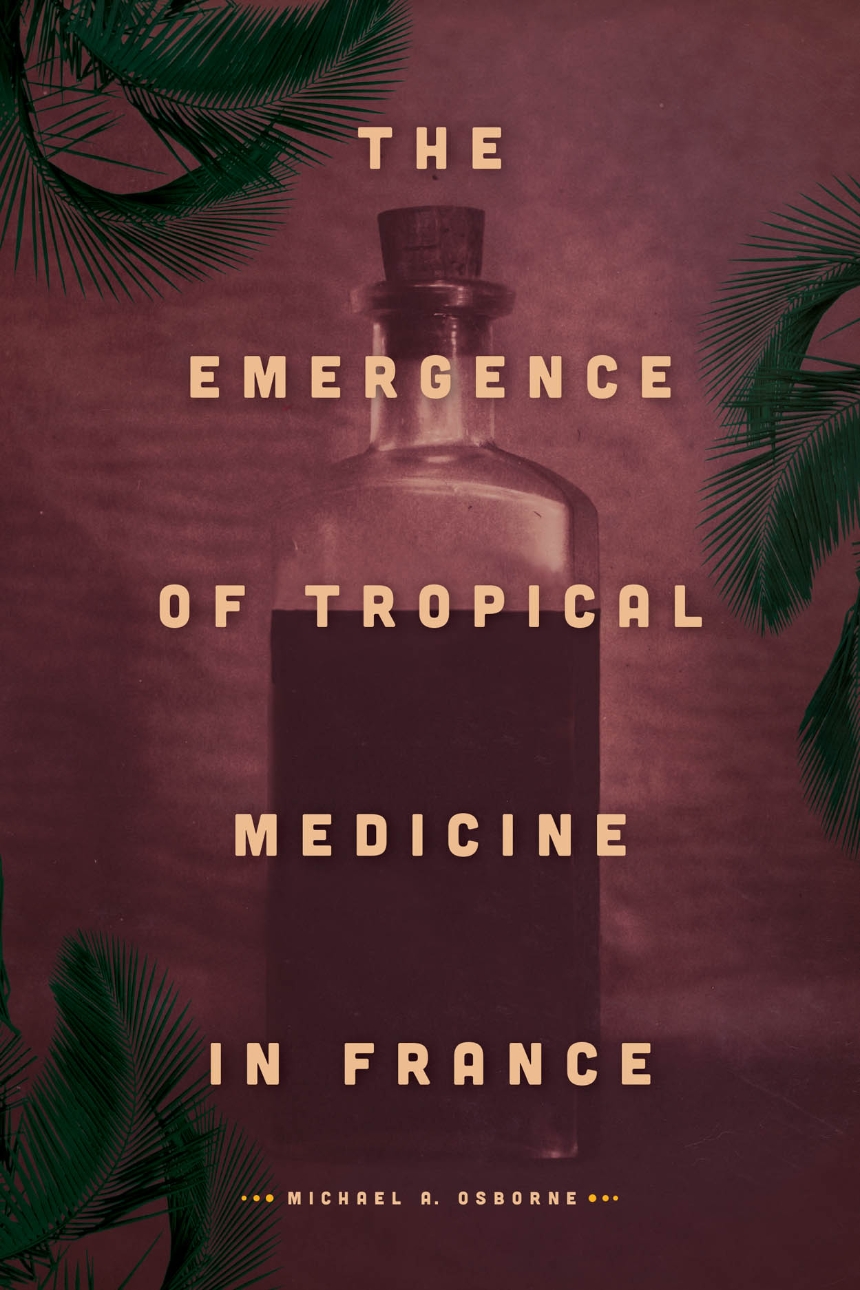The Emergence of Tropical Medicine in France
The Emergence of Tropical Medicine in France examines the turbulent history of the ideas, people, and institutions of French colonial and tropical medicine from their early modern origins through World War I. Until the 1890s colonial medicine was in essence naval medicine, taught almost exclusively in a system of provincial medical schools built by the navy in the port cities of Brest, Rochefort-sur-Mer, Toulon, and Bordeaux. Michael A. Osborne draws out this separate species of French medicine by examining the histories of these schools and other institutions in the regional and municipal contexts of port life. Each site was imbued with its own distinct sensibilities regarding diet, hygiene, ethnicity, and race, all of which shaped medical knowledge and practice in complex and heretofore unrecognized ways.
Osborne argues that physicians formulated localized concepts of diseases according to specific climatic and meteorological conditions, and assessed, diagnosed, and treated patients according to their ethnic and cultural origins. He also demonstrates that regions, more so than a coherent nation, built the empire and specific medical concepts and practices. Thus, by considering tropical medicine’s distinctive history, Osborne brings to light a more comprehensive and nuanced view of French medicine, medical geography, and race theory, all the while acknowledging the navy’s crucial role in combating illness and investigating the racial dimensions of health.
Osborne argues that physicians formulated localized concepts of diseases according to specific climatic and meteorological conditions, and assessed, diagnosed, and treated patients according to their ethnic and cultural origins. He also demonstrates that regions, more so than a coherent nation, built the empire and specific medical concepts and practices. Thus, by considering tropical medicine’s distinctive history, Osborne brings to light a more comprehensive and nuanced view of French medicine, medical geography, and race theory, all the while acknowledging the navy’s crucial role in combating illness and investigating the racial dimensions of health.
328 pages | 8 halftones | 6 x 9 | © 2014
Geography: Cultural and Historical Geography
History: European History
Reviews
Table of Contents
List of Abbreviations
Introduction: Place, Medicine, and the Colonial Situation
One. Emplacements: Medicine, the Navy, and the Enlightenment Heritage
Two. A Medicine and Hygiene of Place
Three. Medical Constructions of Race: Biological Determinism and Anthropological Pluralism
Four. Belligerence, Bombs, and Bordeaux: A New Place for Naval and Colonial Medicine
Five. The Emergence of Colonial Medicine in Marseille
S. Colonial Medicine at the Paris Faculty of Medicine
Conclusion
Acknowledgments
Notes
Bibliography
Index
Introduction: Place, Medicine, and the Colonial Situation
One. Emplacements: Medicine, the Navy, and the Enlightenment Heritage
Two. A Medicine and Hygiene of Place
Three. Medical Constructions of Race: Biological Determinism and Anthropological Pluralism
Four. Belligerence, Bombs, and Bordeaux: A New Place for Naval and Colonial Medicine
Five. The Emergence of Colonial Medicine in Marseille
S. Colonial Medicine at the Paris Faculty of Medicine
Conclusion
Acknowledgments
Notes
Bibliography
Index
Awards
North American Society for Oceanic History: John Lyman Book Prize
Honorable Mention
